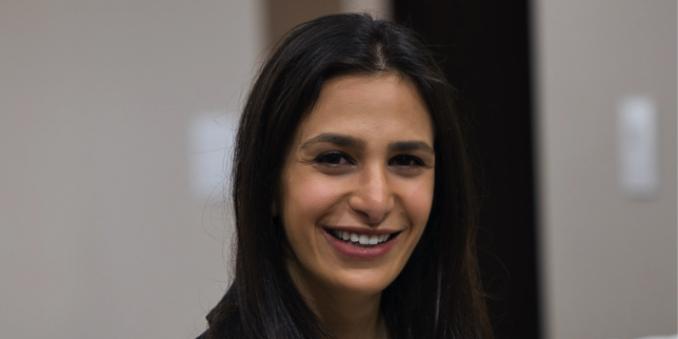From conducting research at the Begun Center for Violence Prevention Research and Education to leading student organizations such as the Middle Eastern Cultural Association, those of Arab American heritage are engaged in countless facets of Case Western Reserve University.
In recognition of Arab American Heritage Month, which takes place annually in April, The Daily is celebrating the accomplishments and experiences of four Arab American members of the CWRU community. Discover more about their experiences at the university—and learn how their heritage has impacted their lives.
Answers have been lightly edited for clarity and length.
Luma Masarweh-Zawahri
Research Associate
Begun Center for Violence Prevention Research and Education
Luma Masarweh-Zawahr’s professional journey is deeply intertwined with her Arab American heritage. As a research associate at the Begun Center for Violence Prevention Research and Education, she works on critical social science research that addresses mental health, substance use and community-based interventions. Her experiences as a Jordanian-American—shaped by dual cultural identities—inform her commitment to culturally responsive research.
“While I grew up in Jordan, I’ve visited the U.S. almost every year since childhood, completed my undergraduate and graduate work in the U.S, and over time, I’ve come to feel that I grew up in both places,” she said. “My home life is deeply shaped by both American and Jordanian cultures—everything from food and language to values around hospitality, resilience and family ties. Navigating that dual identity shaped a lot of how I see the world and how I engage in my work and relationships today.”
Could you describe your role at CWRU and how your Arab American background has influenced your professional journey?
I work on a variety of social science research particularly in the areas of mental health, substance use and community-based interventions. Before this role, I completed my PhD at CWRU, where my research and training focused on health disparities and cultural identities. My dissertation research explored second-generation Arab Americans and how they navigate identity and belonging across borders. That work shaped how I think about cultural complexity—not just for Arab Americans but for all communities whose experiences don’t always fit neatly into categories across.
My Arab American identity plays a significant role in how I approach my work at the Begun Center. It grounds me in a deep awareness of the systemic barriers that marginalized communities face and informs my commitment to culturally responsive research practices.
How has CWRU supported your cultural identity in the workplace?
I’ve had the opportunity to work alongside colleagues and learn from CWRU faculty who respect and value diverse perspectives, which has made it easier to bring my full self into all CWRU spaces. I use my cultural background and academic training to inform our research, especially projects focused on marginalized communities, people affected by substance use disorders, and the overlap between the two. Having a minority-informed perspective allows me to approach my work at the Begun Center with a broader understanding of the different experiences people bring with them.
Read about the other three Arab American members of the CWRU community.


